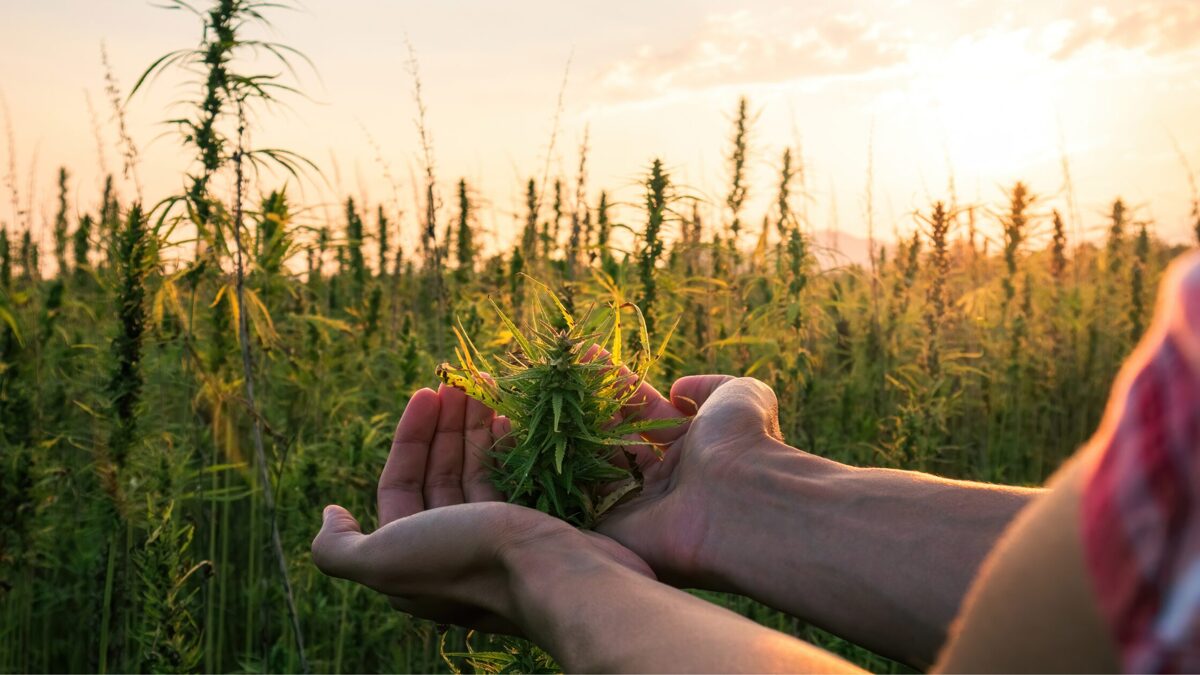The Future of Hemp in Agriculture

As the hemp industry continues to flourish, it presents an exciting opportunity to reshape sustainable agricultural practices. Known for its versatility and minimal environmental impact, hemp has the potential to become a cornerstone of modern agriculture. In this post, we’ll analyze how hemp can contribute to a more resilient and environmentally friendly agricultural landscape.
Soil Health and Regeneration
Hemp is a remarkable crop that can significantly improve soil health and promote regeneration. Its deep root system helps aerate the soil, enhances water retention, and prevents erosion. By cultivating hemp, farmers can replenish nutrient levels in the soil, making it more fertile for future crops. Furthermore, hemp’s ability to extract heavy metals and pollutants from the soil—known as phytoremediation—can help restore contaminated land, paving the way for healthier ecosystems (A. N., 2021).
Crop Rotation and Biodiversity
Integrating hemp into crop rotation systems can substantially enhance agricultural biodiversity. Alternating hemp with traditional crops disrupts pest cycles and reduces the need for chemical pesticides. This practice not only supports healthier crops but also fosters a more resilient agricultural ecosystem. Moreover, cultivating hemp alongside other crops can create habitats for beneficial insects and wildlife, promoting ecological balance (C. R., 2022).
Sustainable Resource Management
Hemp requires far fewer resources than many traditional crops, making it an attractive option for sustainable agriculture. It thrives in various soil types and climates, often needing less water and fewer fertilizers compared to crops like cotton or corn. By reducing reliance on synthetic inputs, hemp cultivation aligns with sustainable farming principles, contributing to a more environmentally friendly agricultural landscape (D. L., 2020).
Economic Opportunities
The growth of the hemp industry can provide new economic opportunities for farmers and rural communities. By diversifying their crops and integrating hemp into their farming practices, farmers can tap into emerging markets for hemp-derived products, including textiles, construction materials, and health supplements. This diversification can enhance local economies, promote job creation, and strengthen community well-being (B. W., 2023).
Climate Change Mitigation
As global concerns about climate change intensify, hemp emerges as a potential ally in the fight against environmental degradation. The plant's rapid growth and high carbon sequestration capacity make it an effective tool for mitigating greenhouse gas emissions. By integrating hemp into agricultural systems, farmers can contribute to climate resilience and help combat the adverse effects of climate change on food security (J. T., 2022).
The future of hemp in agriculture is bright, with its potential to enhance sustainability and resilience in farming practices. By improving soil health, promoting biodiversity, and providing economic opportunities, hemp can play a crucial role in creating a more environmentally friendly agricultural landscape. As the hemp industry continues to grow, embracing this versatile crop may lead to a more sustainable future for agriculture.
In line with this mission, we’re launching an e-course on hemp cultivation in January 2025. This course will provide valuable insights and practical knowledge to anyone interested in integrating hemp into their farming practices. If you’re curious about deepening your understanding of hemp cultivation, consider reserving your spot early.
References
A. N. (2021). Phytoremediation Potential of Hemp: A Review. Environmental Science & Policy.
C. R. (2022). Enhancing Biodiversity through Crop Rotation: The Case of Hemp. Agricultural Ecosystems & Environment.
D. L. (2020). Sustainable Practices in Hemp Cultivation: A Guide for Farmers. Journal of Sustainable Agriculture.
B. W. (2023). Economic Impact of Hemp on Rural Communities. Journal of Rural Studies.
J. T. (2022). Hemp as a Climate Change Mitigation Strategy: Opportunities and Challenges. Climate Policy.
